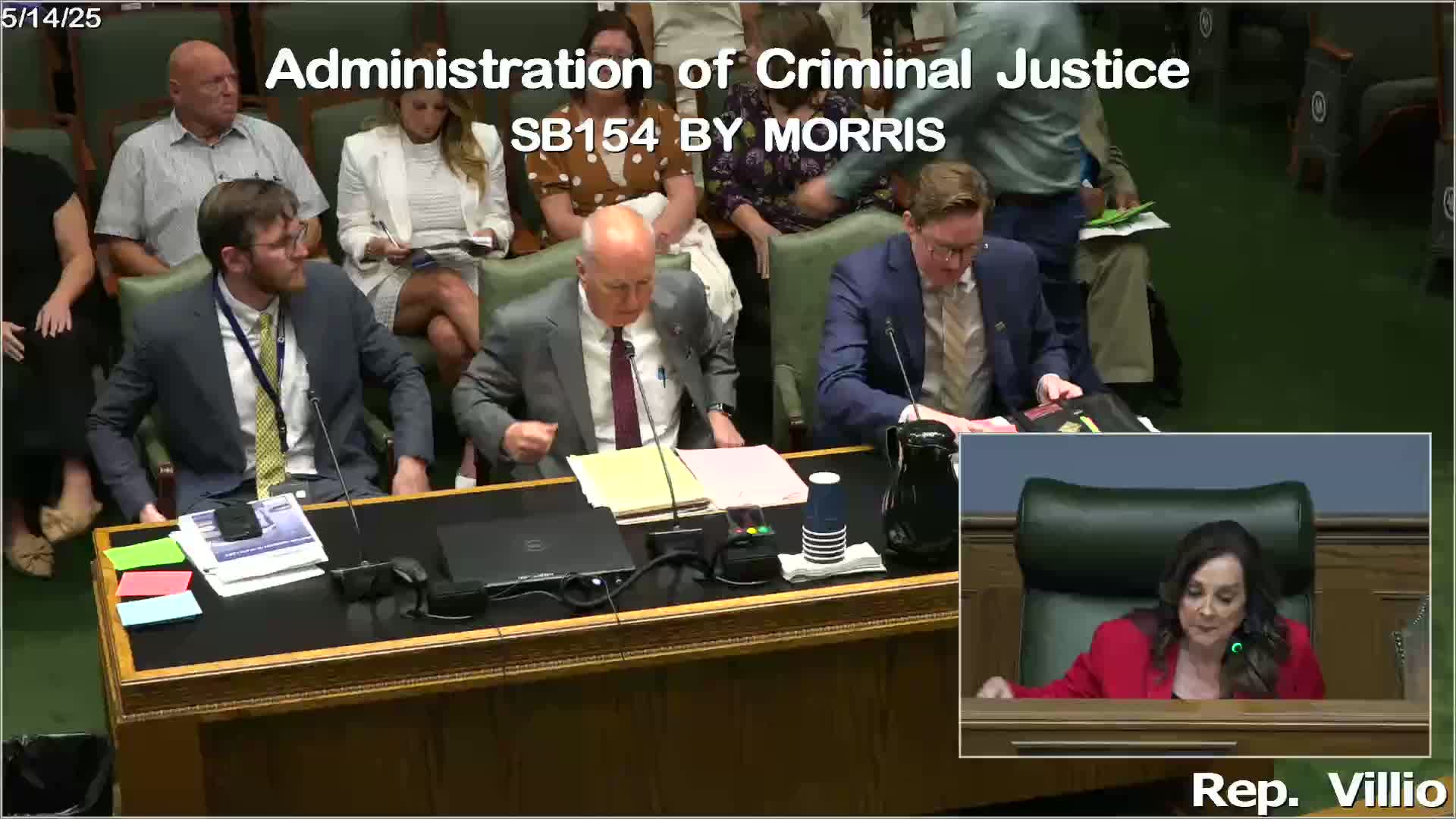Article not found
This article is no longer available. But don't worry—we've gathered other articles that discuss the same topic.
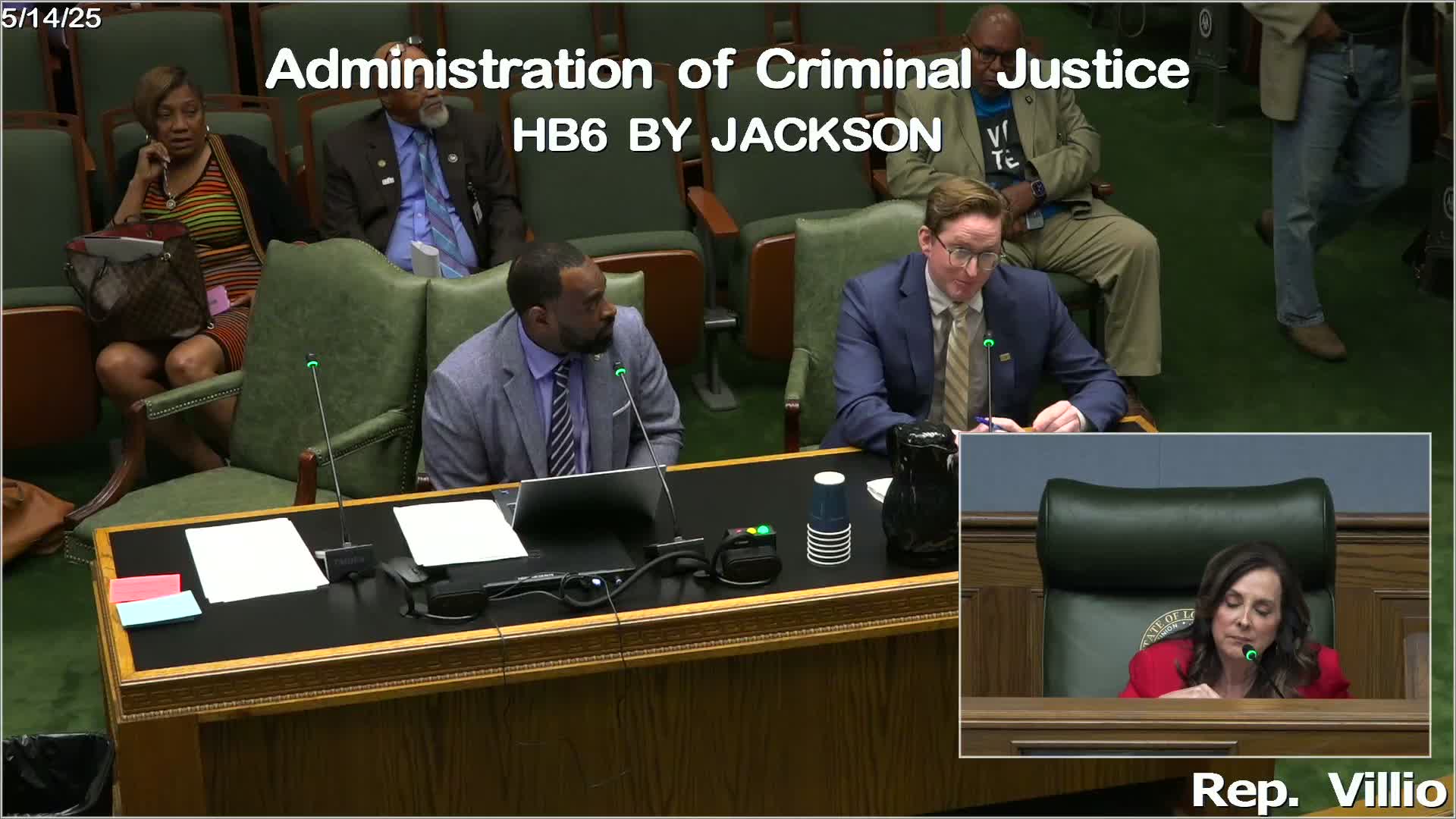
Committee amends solicitation statute to criminalize purchasers and to expand services for trafficking victims
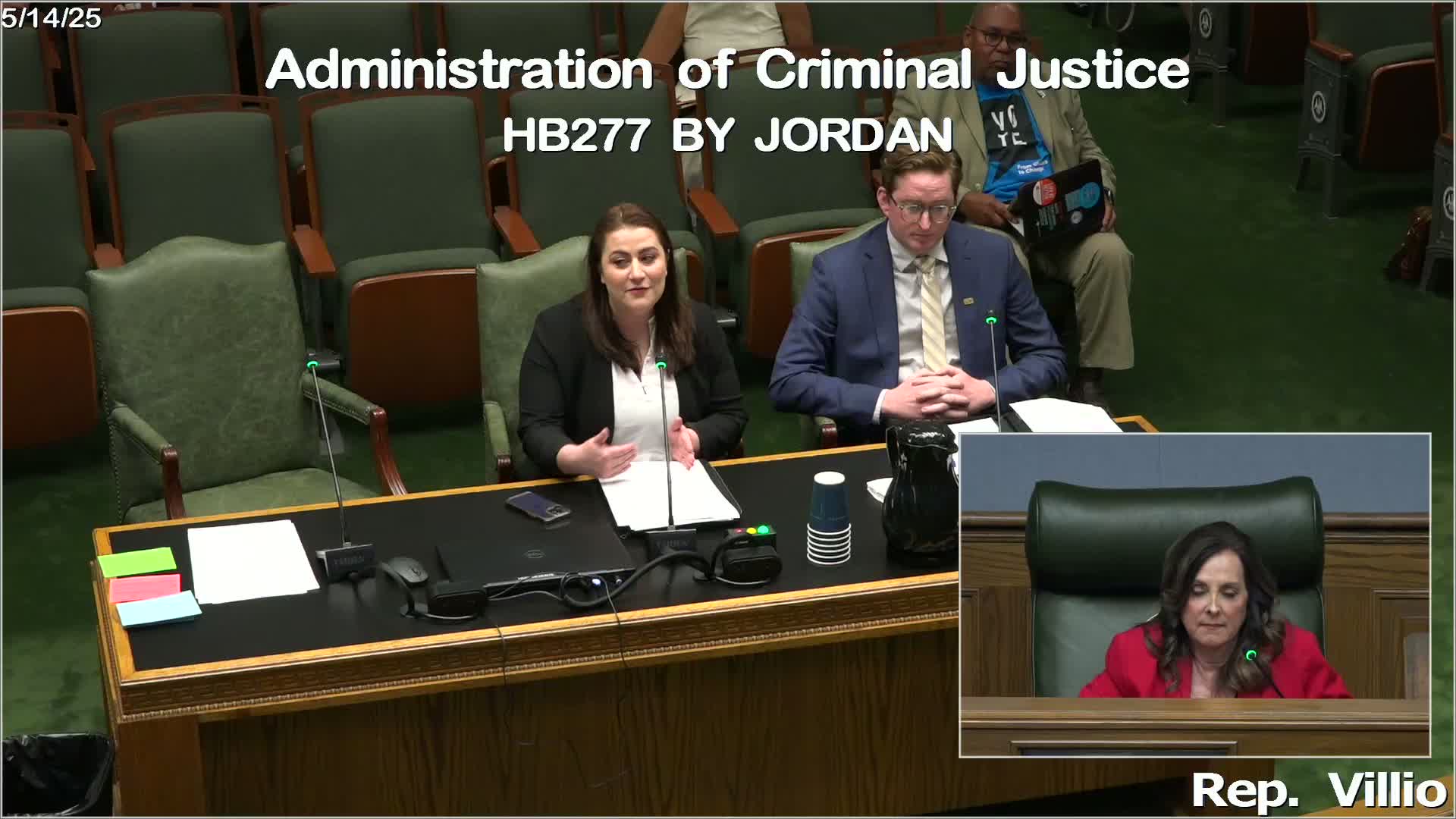
Committee approves theft-of-critical‑infrastructure bill after technical amendment expanding covered equipment
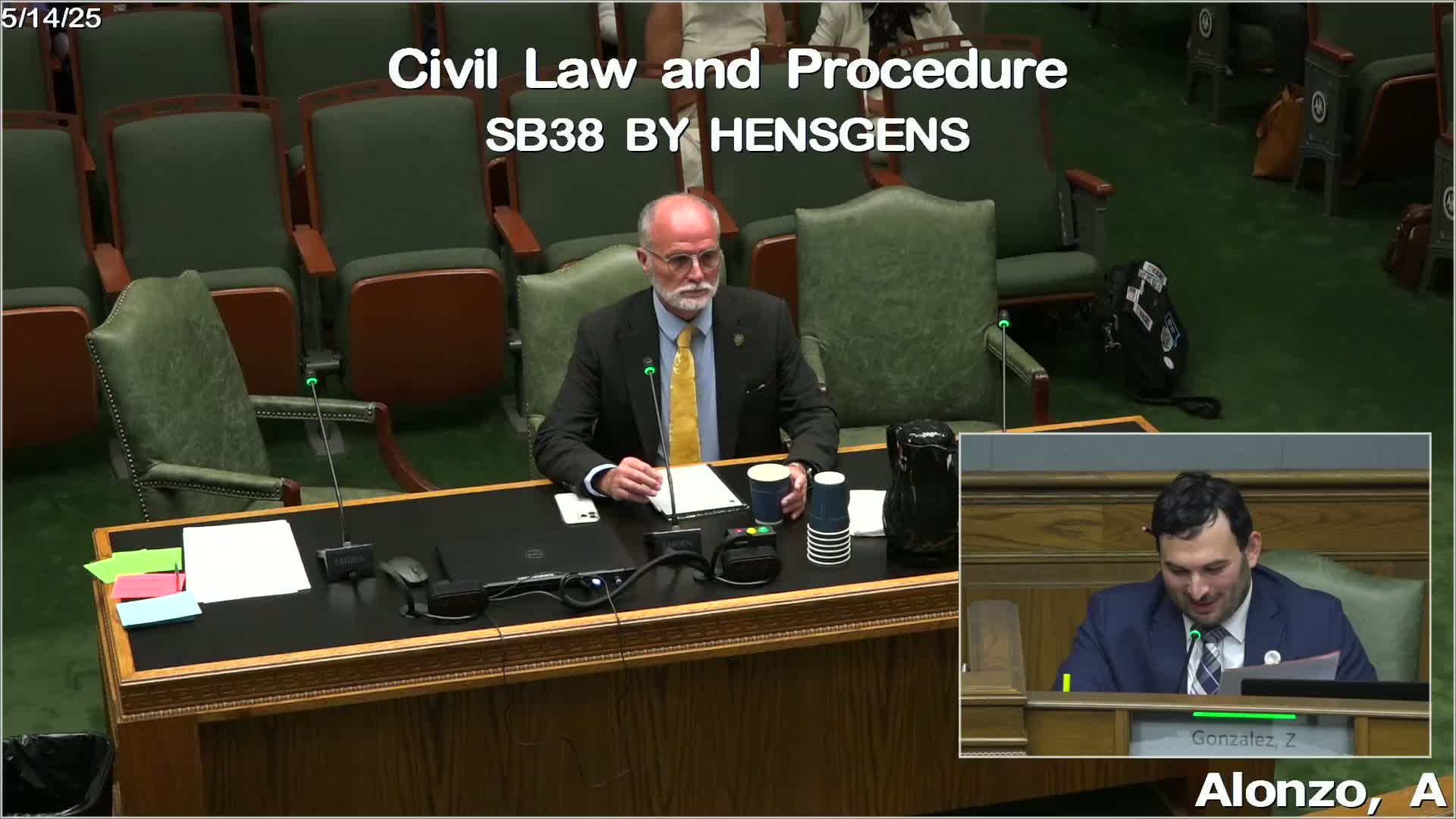
Committee adopts amendment and advances theft bill aimed at large-scale gift-card fraud
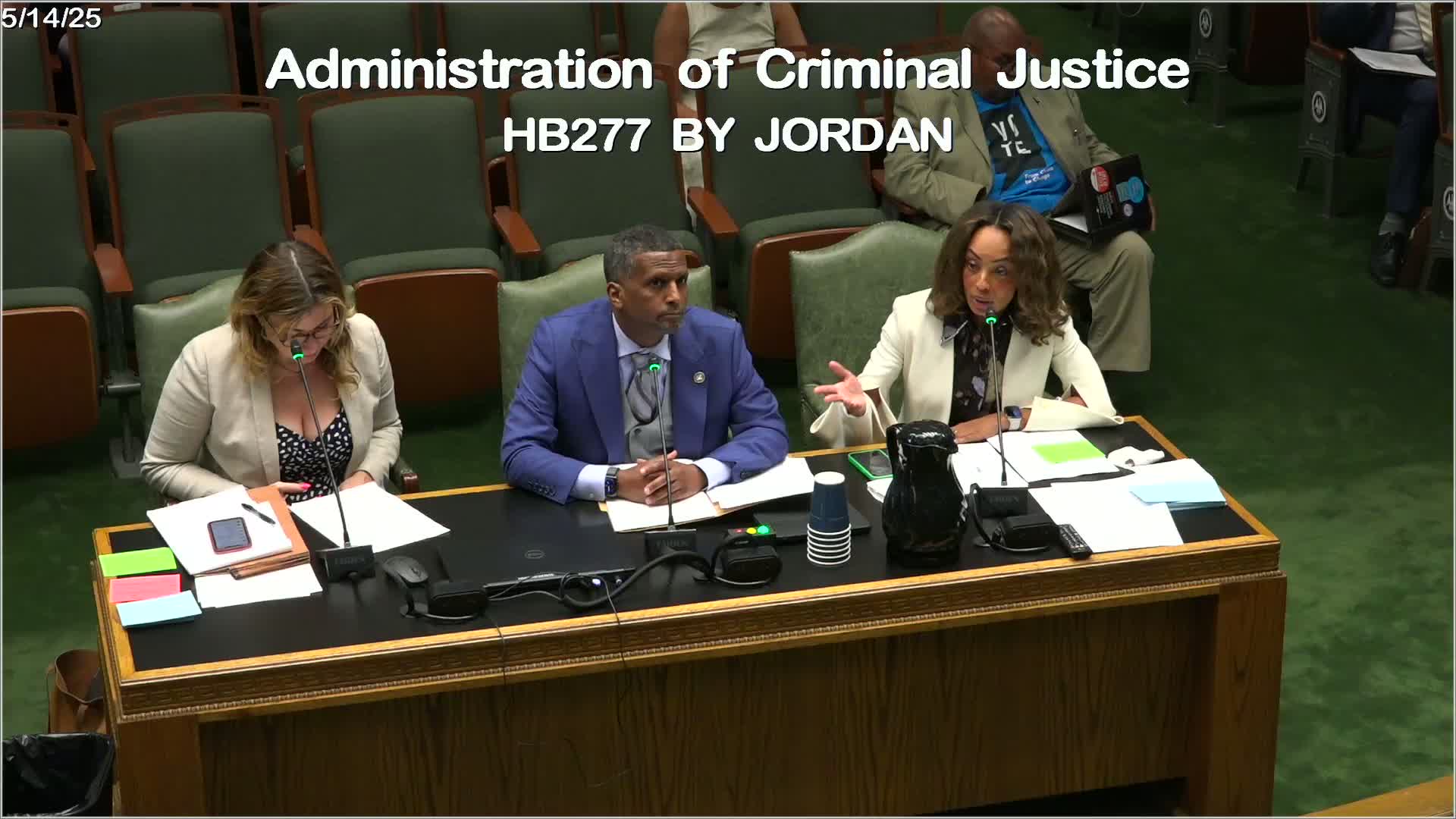
Committee reports bill targeting misappropriation of tenant utility payments after contentious debate over corporate liability
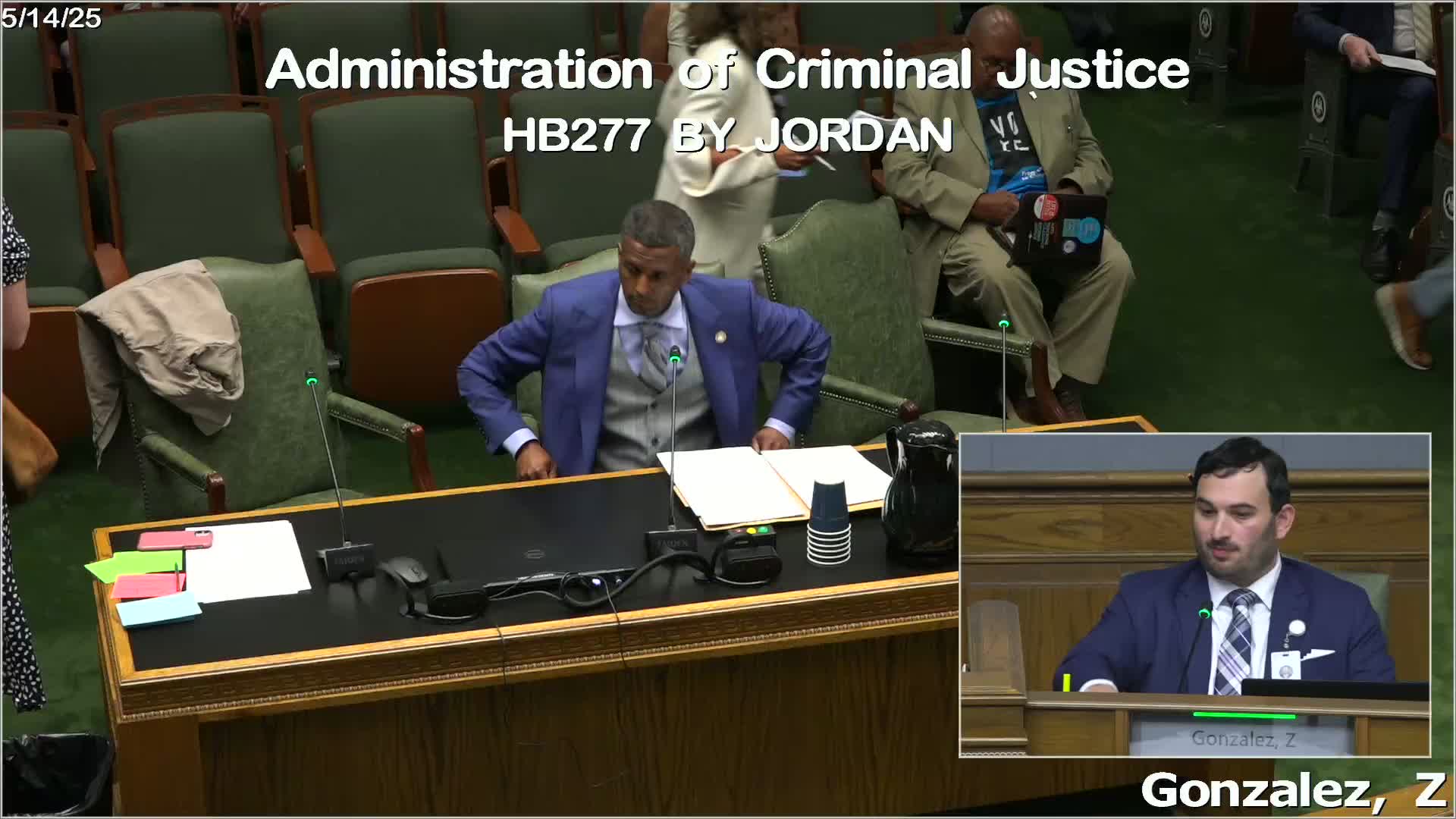
Committee advances bill to attach right to counsel at initial appearance after narrowing subpoena and service changes
